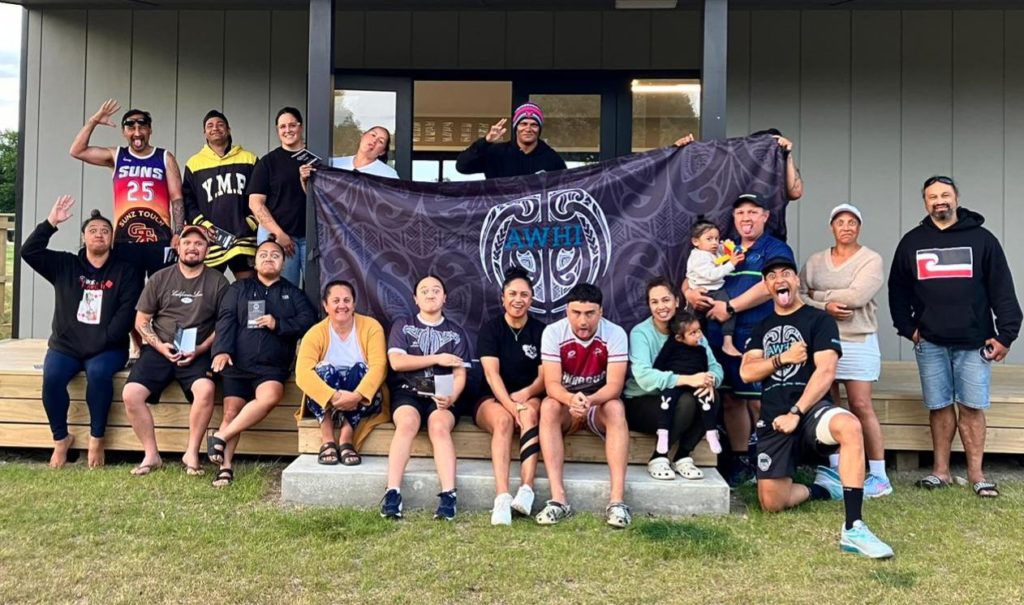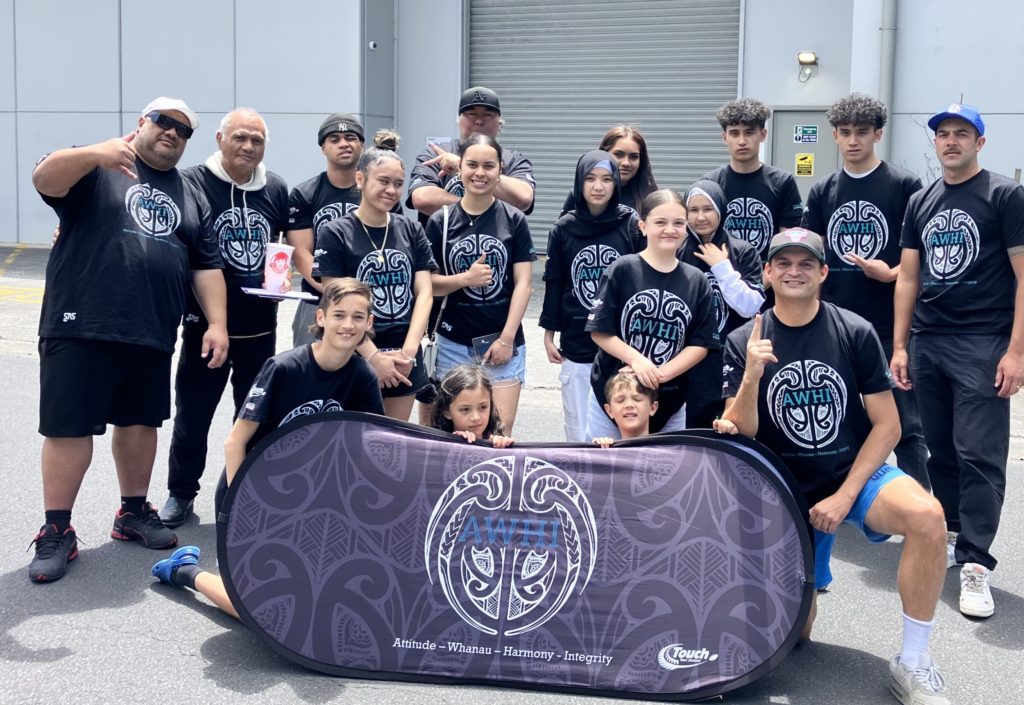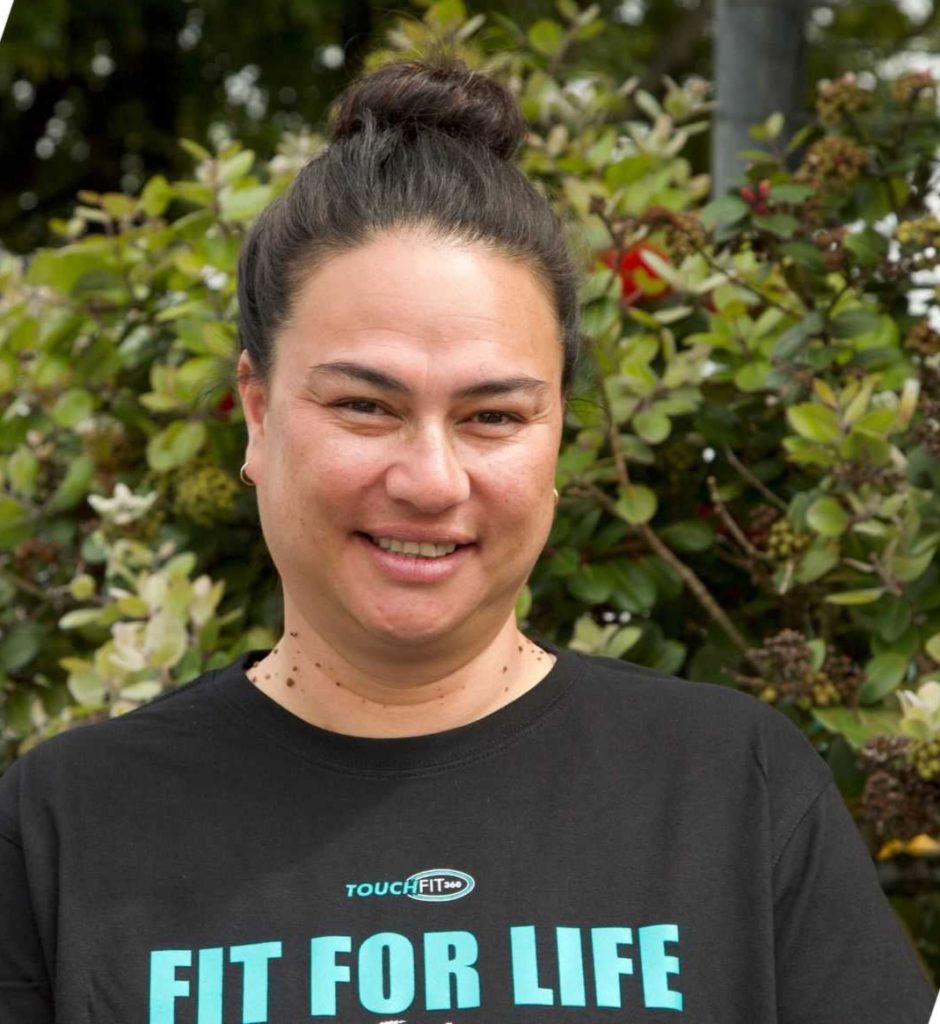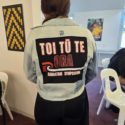Anti-social behaviour at national Touch NZ games has plummeted as a direct result of the Attitude, Whānau, Harmony and Integrity (AWHI) programme promoting positive behaviour on and off field.
Behaviour at multi code community events using this sideline support programme has been similarly impacted.
At the heart of this movement for change is the AWHI Promise, a commitment to supporting positive environments and respectful behaviour that whānau discuss and are asked to sign up to when registering for an event.

AWHI has impact
Over the last three years, Touch NZ has delivered AWHI at all 12 National Touch Championships, reaching more than 800 players, coaches, managers and spectators per event.
Reported incidents of poor behaviour have dropped year by year, with a significant reduction at this year’s Touch NZ Youth Nationals. There has also been a substantial rise in requests from the wider touch rugby community to blend AWHI into their local and regional structures.
The Ngāti Porou East Coast Rugby Union have already piloted the framework and there’s strong interest from Netball NZ and Waka Ama NZ.

A network of skilled whānau
AWHI celebrates the positive, fun-focused culture of sporting events while diffusing negative behaviour through the sensitive intervention of trained volunteers moving quietly among supporters.
Easily identified by their AWHI branded t-shirts, this network of skilled whānau works together, friends supporting friends, tuakana supporting teina. Keeping an eye out for potentially aggressive behaviour, they quietly engage those involved in conversation, lightening the atmosphere and providing a calming influence. It’s subtle but it works.

AWHI: More than a sideline promise
Veteran iwi radio broadcaster and ardent on-air promotor of the E Tū Whānau kaupapa, Pat Spellman is the MC at Touch NZ’s national tournaments. He’s been calling games over the loudspeakers, celebrating people and consistently reinforcing the mutually supportive E Tū Whānau and AWHI kaupapa for more than decade.
Nine years ago, Pat, E Tū Whānau kaimahi Mikaira Pau, and Touch NZ colleagues, Michael King and Moni Collins, got together to address anti-social behaviour at all levels of the sport.
They weren’t interested in punishing or pointing fingers at frustrated, angry supporters.
“We didn’t set out to tackle the problem of bad behaviour head-on,” says Pat. “We focused on enhancing the person and developing safe, accepting spaces where people from all our different communities can relax and bring their entire whānau, their aiga, their family, knowing that they’ll be safe.”
E Tū Whānau was the inspiration and AWHI was the result.
Pat says AWHI is influencing positive behaviour in local communities as well. He points to a marked decrease in the use of alcohol both during and after games as one example.
“We no longer have to walk the sidelines reminding people that they’re at a liquor free event. Ten years ago, I would have been the first to have a few beers after the game but that’s not what happens now.”
He talks of the impact the tikanga based AWHI programme has had on the strong cohort of young pakeke who’ve grown up with touch rugby over the last decade. These whānau, who are now players, officials, administrators as well as supporters, lead with empathy and confidence.
“They’ve grown up with AWHI values and bring that respectful way of being to tournaments, community games and to their online interactions. They’re teaching their tamariki the same thing,” says Pat.
Community Connect takes AWHI to the people
AWHI is now run by Pūmanawa Āwhina or Community Connect, the ‘social good arm’ of Touch NZ and a standalone entity of its own. Its currently working alongside ten communities to run social sport and recreation interventions across Te Tai Tokerau and Tāmaki Makaurau.
Community Connect interventions are shaped by the needs and strengths of a particular community. They embrace touch, volleyball, league, netball, ki o rahi or any sporting code communities are interested in. The priority is always to create a space where whānau can come together, feel safe and have fun.
AWHI’s Operations Manager, Josh Simpkins, says Community Connect embraces all sports as a way to connect whānau, build confidence and create positive, inclusive environments.
“It’s about whanaungatanga – bringing people together, strengthening relationships and encouraging intergenerational play.”
Igniting potential in rangatahi
Sarah Leaf is the Pūmanawa Āwhina Development Lead for the Igniting Potential in Rangatahi (IPIR) programme in the Tāmaki Makaurau rohe.

“Our Taiohi, or Youth Leaders, are trained in the principles of AWHI. They’re encouraged to lead with empathy and confidence and taught how to de-escalate conflict and build understanding.”
Taiohi are the hands-on workers at events. Sarah calls them ‘the muscle’.
“They do everything from erecting gazebos and running sausage sizzles to preparing sports fields, helping at registration and surveying attendees to gauge community need,” she says.
“We expect positive behaviour at our events. We cheer all participants, including the opposition and respect all players, coaches and managers at all times.”
Community Connect ‘interventions’ are open to everyone in their rohe and attract neighbours from different ethnic and cultural backgrounds.
“We respect everyone’s tikanga and cultural values and reflect on what it feels like to truly belong,” says Sarah.
Taiohi were terrific at PALM Symposium 2025
In July, Sarah and eight Taiohi from Māori and Paskifika communities in Tāmaki Makaurau and Te Tai Tokerau travelled to Upper Hutt for the 2025 Peaceful Action Leadership Movement (PALM) Symposium.
They were excited by the opportunity but also shy about spending four days with 80 strangers from different backgrounds.
That shyness didn’t last long.
“They loved meeting rangatahi from Asia and the Middle East and felt like they’d made friends for life. They learnt about different cultures and, importantly, were proud to share their own culture,” said Sarah.
Sarah was amazed at how quickly they gained confidence and grasped opportunities to learn new skills.
Plans are being developed for these young Taiohi to develop facilitation skills and deepen their understanding of community development practice by managing the roll out in their own environments of the E Tū Whānau community mobilisation assessment tool, Te Whakaoreore Aromatawai Hāpai ki te Hapori.
“These kids come from big families. They’re often leaders within their families and take their responsibilities seriously.
At PALM, all they had to do was turn up on time for workshops. No other responsibilities. They took in all the learnings, and they really loved it.”



